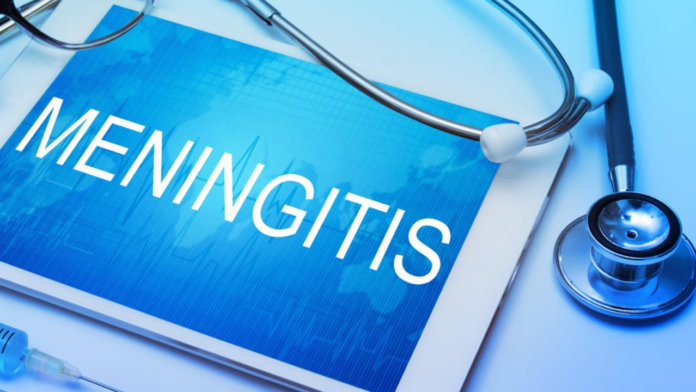The Nigeria Centre for Disease Control and Prevention (NCDC) has raised concerns over the increasing number of Cerebrospinal Meningitis (CSM) cases across the country, saying its peak season is between November and May.
According to Premium Times, the latest figures indicate a surge in infections, with 807 suspected cases and 74 deaths reported across 22 states and the Federal Capital Territory (FCT) as of 26 March, 2025.
The NCDC Director-General, Jide Idris, said this on Monday in Abuja.
Mr Idris said the agency has activated emergency response measures to curb the outbreak, particularly in Kebbi, Katsina, and Sokoto—the most affected states.
“We are in the peak meningitis season, and the risk of transmission is high due to dry, dusty weather and overcrowding,” he said.
“The government is intensifying vaccination efforts, but public awareness and early detection remain crucial in preventing fatalities.”
According to him, in Kebbi State, health authorities have confirmed 248 suspected cases and 26 deaths since late January.
He described the situation as alarming.
“We are experiencing a sharp increase in cases, and urgent intervention is required to prevent more deaths. In Gombe State, 70 suspected cases have been recorded, with 31 confirmed infections and three fatalities,” he said.
He urged residents to seek medical attention immediately if experiencing any symptoms.
“Meningitis is a deadly but preventable disease. Anyone experiencing high fever, stiff neck, or severe headaches should visit a health facility without delay,” he said.
He said that cerebrospinal meningitis is a life-threatening infection of the brain and spinal cord, caused by Neisseria meningitidis bacteria.
He noted that the infection spreads through coughing, sneezing, and close contact, making overcrowded areas, schools and IDP camps high-risk zones.
“Common symptoms are severe headache and high fever, neck stiffness, vomiting and confusion, sensitivity to light and seizures (in severe cases),” he said.
He noted that without urgent treatment, meningitis could lead to brain damage, hearing loss, or death within hours.
To curb the outbreak, he said that the agency has deployed Rapid Response Teams (RRTs) to the hardest-hit states.
“These teams are working with state governments to conduct mass vaccination campaigns in high-risk areas, strengthen case surveillance and laboratory testing, provide free treatment for confirmed cases at government hospitals and launch public awareness drives to educate citizens on prevention,” he said.
According to him, vaccination remains the most effective protection against meningitis.
He appealed to parents and community leaders to ensure that children and at-risk individuals get vaccinated.
He said that Nigerians can stay safe by getting vaccinated at the nearest health centre, avoiding overcrowded, poorly ventilated places and practising good hygiene—washing hands regularly.
Mr Idris also advised citizens to avoid close contact with sick individuals and seek immediate medical attention if symptoms appear.
He warned health officials that meningitis cases could continue to rise if preventive measures were not taken seriously.
“Nigerians are urged to report suspected cases immediately. For emergencies, dial the NCDC helpline: 6232,” he said.
“Early detection saves lives. Let’s work together to stop this outbreak before it claims more victims.”



